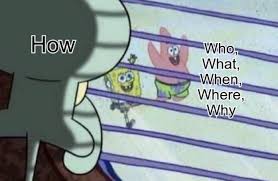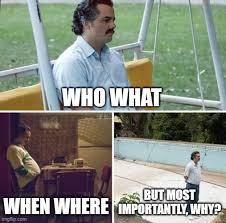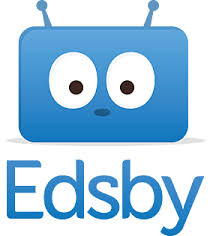I hope the mental health of the blender is okay, and if you need someone to talk to, please consider some of these resources.
Welp, that’s a bit of a wild intro into creating a Blended Lesson for my Health 9, but transitions have never really been my specialty. Skip to 4:30 in this video for reference. Yes, that’s my toilet.

My ADDIE Template can be found here. It is better described in detail below!
I will be creating a blended lesson/module that I will be able to utilize with Saskatchewan’s Health 9 curriculum. Specifically, I will be addressing the outcome surrounding Food Policy. This outcome, and Health 9 as a whole, is a passion area of mine. If I am able to create something to my liking, I am for sure going to attempt to use it in my everyday classes. With my current crop of Health 9 kids we should get to this topic in a few weeks. Holding my breath this is done before then!
Let’s break this down with a good ol’ who, what, when, where, why, and how. Albeit in maybe a different order that makes a little more sense chronologically.


What:
I will utilizing the technological powers that I have access to at my school (Chromebooks, projectors, cellphones, tablets, etc.) to create a blended lesson for my Health 9 students. I will be utilizing Google Classroom as my Learning Management System (LMS) of choice.
Why:
Because this is the assignment? Jokes aside, the reason I am selecting Health 9, a blended approach, and google classroom are because of the practicality to my job it offers. I am a classroom teacher. I once fantasized at the idea of teaching fully online, but I genuinely like being in school. A blended approach, specifically one where we are using technology to help us further our in-person discussions, is a method that I use quite a bit. By creating something for my peers to see and review, I feel it will only help me improve my skills and pedagogy surrounding technology to be able to provide something even more proficient and creative.
Google Classroom is being utilized because I’m familiar with it and so are my students. The school division I work for provides google accounts for the students. I personally like to just use EDSBY, but feel classroom can be a little more user friendly. As well, when it comes to assessment practices I am dealing with Grade 9s (who will be described more below) in the age of Chatgpt and other AI machines. A behaviorist approach isn’t my go to, but google classroom allows for instant feedback for the students in some regards. It also allows for me to create google docs for the students to utilize and it lets me track their progress. They can still cheat in a variety of different ways, but this helps make it a little harder for them. At this age our school is really trying to hammer in academic integrity and when to use AI appropriately.
Who:
The demographic I will be teaching to are Grade 9’s (ages 13-15 depending on the semester and birthdates). The students come from a variety of different backgrounds. We have differences in cultures, languages, genders, orientations, religious beliefs, etc. Public school is beautiful this way, but it can also present challenges when trying to have everybody feel represented. I’m doing my best though! Some students have access to technology at home, while others don’t. Some have phones while they’re at school, while again, others don’t. With this blended approach I hope to mitigate this technological disparity. I can provide the technology for the students, via laptop carts, so they don’t have to feel othered or like they can’t participate because they don’t have technology or data for internet access. Our current setup has us altogether anyways, so this will create some equity for those without the potential at home. Well, maybe it’s not enough equity because a student can’t take a laptop home to work on something, while another could just use a laptop at home if they need to do it for homework. I feel I could get passes this by using a survey to find out who has what access, if they’re willing share, and provide different due dates for individuals to hopefully keep working towards that equity piece.
Where:
As I am going for the blended option, the learning will take place in person in the classroom. Technology, will be available to the students in the class. Material will be on Google classroom, as mentioned. If a student needs help this offers them the ability to have me in person there. They are also free to message me through EDSBY or via email to set up a time for additional help.
When:
Now I guess! This outline is due tomorrow so… In reality I will use this as we enter our Food Policy unit in a few weeks. The method of delivery will be synchronous, as we complete activities in the class together, but if students are away or sick, they will still be able to complete the tasks asynchronously to stay up to date and informed. They will have access to the full material for the day, they may just miss out on the relational piece of working with their peers in person.
How: The all important question.
-Students will meet in class (in person)
-They will grab laptops from the cart provided
-Activities will include:
-As a diagnostic assessment I will utilize Padlet to offer the students a few thought-provoking questions to see what they know about Food policy. Students can respond in either word, pictures, GIFs [pronounced as spelled ;)] anonymously. Links to the Padlet will be posted on our Google Classroom. Those away will have access to the link and can contribute as well or view the answers for reference. This will be projected onto the whiteboard via a data projector. (3-4mins)
– Class discussions, referencing the Padlet will be had (5mins)
– Informative video will be shown with subtitles. Will be posted to Google Classroom for those away. (7mins). The video will utilize an H5p system, I’m just not sure how I want to do it yet. It will probably follow the style of pausing with questions, but I want to see what else I can do with it an explore. This is very much still a work in progress.
-Students will respond to the video with guiding questions. Questions will be around what was spoken about in the video and relating to ourselves by comparing our school food program to the video’s. This is less about repeating info, which will be covered by the Hp5, and more about attempting to utilize it. This will be done by google docs and submitted through google classroom (Formative assessment). (10mins)
-After video will move into the topic of how Food policies have changed over the years by comparing and contrasting the old Food Guide and the current Canada Food Guide. Posted on Classroom for those away. (8mins)
-Students will partner up and Use Canva to create a Venn Diagram to compare the food guides. (7-8mins)
-To wrap up class we will brainstorm foods we notice in our school cafeteria and how that lines up with the guides. (To the bell)
Wrap-Up
In my head, and from past experience, these types of activities have gone pretty well. In reality, we’ll see when I try it out in person. I fully intend to utilize this. The blended approach allows for student creativity in a variety of mediums and can help give a voice to those who feel too shy or insecure to talk in a larger group. Many of the activities have the opportunity for discussion after, but students will still be able to participate and gain all the info from the various activities if they don’t contribute to the conversation. I post all my stuff digitally and this will benefit those that want to go back and look at stuff or who miss class. This saves me time because I don’t have to prepare worksheets or print them off for students. I’m hoping this experience will allow me to further my own horizons when it comes to all the different forms of technology I could be using to help further my students education. In the past I’ve kept mediums completely open for activities. I’ve said here’s what I want answered or examined: make it however you want it. This might be a little broad for this assignment, but it just shows the power of a blended approach.









 (what my home monitor looked like in 2001)
(what my home monitor looked like in 2001) (what my students use on the regular)
(what my students use on the regular) (Edsby has grown on me)
(Edsby has grown on me)



